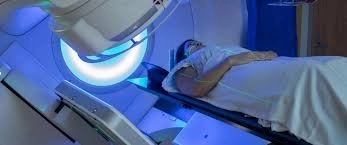
When Is Radiation Therapy Used? Benefits and Side Effects Supervised by: Dr. Ola Saqr – Dr. Jehan Khodr Dr. Soham Magdy Ame
Published on: 2025-06-14 | Written by: Hope cancer center
What is Radiation Therapy?
Radiation therapy is one of the most important cancer treatment methods. It involves using precise doses of radiation to destroy cancer cells or shrink tumors. It may be used alone or combined with surgery or chemotherapy depending on the specific case.
When Do We Use Radiation Therapy?
Doctors may recommend radiation therapy in the following cases:
-
After surgery – To eliminate any remaining cancer cells and reduce recurrence.
-
Before surgery – To shrink the tumor and make it easier to remove.
-
As a primary treatment – For cases where surgery or chemotherapy isn't suitable.
-
For symptom control – Such as relieving pain or bleeding caused by advanced tumors.
Benefits of Radiation Therapy
-
Destroys or reduces the size of cancer cells.
-
Improves the patient’s quality of life in advanced cancer cases.
-
Highly effective for certain cancers, such as breast, prostate, head and neck, and uterine cancers.
-
Helps prevent cancer recurrence after surgery.
Possible Side Effects of Radiation Therapy
Although effective, radiation therapy may cause some side effects, which vary based on the treatment area and duration. These include:
-
General fatigue
-
Skin irritation or redness at the treatment site
-
Hair loss in the treated area
-
Gastrointestinal or respiratory issues, depending on the location treated
-
Temporary changes in blood cell counts
Dr. Ola Saqr emphasizes the importance of ongoing follow-up after radiation sessions. Prof. Dr. Jehan Khodr highlights the need for psychological support and proper nutrition during treatment. Dr. Soham Magdy Amer assures that side effects are often temporary and manageable with medications.
Is Radiation Therapy Safe?
Yes, radiation therapy is safe when administered under the supervision of a specialized medical team. Dosages are calculated with precision using advanced technology to minimize damage to healthy tissues.

